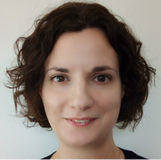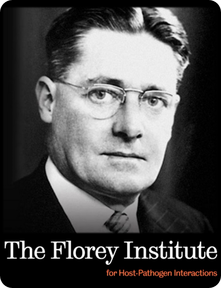Meet the members behind one of the Florey labs!
The Turner laboratory is a relatively new research group, headed by Dr. Claire Turner. Their research focuses predominantly on the Gram-positive bacterium Streptococcus pyogenes, also known as the Lancefield Group A Streptococcus (GAS).
S. pyogenes is capable of causing a diverse range of clinical syndromes. These include the relatively superficial i.e. pharyngitis (‘strep throat’), cellulitis and scarlet fever, but also potentially lethal infections such as necrotising fasciitis and streptococcal toxic shock syndrome. S. pyogenes is responsible for approximately c. 700 million infections each year globally, with c. 500,000 deaths.
Dr. Claire Turner
The Turner laboratory is a relatively new research group, headed by Dr. Claire Turner. Their research focuses predominantly on the Gram-positive bacterium Streptococcus pyogenes, also known as the Lancefield Group A Streptococcus (GAS).
S. pyogenes is capable of causing a diverse range of clinical syndromes. These include the relatively superficial i.e. pharyngitis (‘strep throat’), cellulitis and scarlet fever, but also potentially lethal infections such as necrotising fasciitis and streptococcal toxic shock syndrome. S. pyogenes is responsible for approximately c. 700 million infections each year globally, with c. 500,000 deaths.
Dr. Claire Turner

“My research implements a combination of whole genome sequencing, epidemiology, clinical analysis and phenotypic techniques to elucidate the various mechanisms by which S. pyogenes is able to cause disease, both at the molecular level and at the population level.”
Claire is a Royal society & Wellcome Trust Sir Henry Dale research fellow with over 15 years’ experience working with S. pyogenes. She has also recently been awarded a HEFCE ODA Quality-Related research grant through the University of Sheffield with Dr de Silva and MRC unit The Gambia to study S. pyogenes in The Gambia. In her spare time, Claire enjoys long walks through streptococcal genomes and the peak district, knitting and attending pottery classes. She is a Gryffindor.
Claire is a Royal society & Wellcome Trust Sir Henry Dale research fellow with over 15 years’ experience working with S. pyogenes. She has also recently been awarded a HEFCE ODA Quality-Related research grant through the University of Sheffield with Dr de Silva and MRC unit The Gambia to study S. pyogenes in The Gambia. In her spare time, Claire enjoys long walks through streptococcal genomes and the peak district, knitting and attending pottery classes. She is a Gryffindor.
Alex Remmington

“My research implements aspect of genomics, molecular techniques and protein assays to investigate the role that bacteriophage play in the infectious processes associated with GAS disease. Bacteriophage can carry virulence genes between GAS, and Changes in their prophage complement have linked to upsurges of disease. As in the United Kingdom, we endure our fifth consecutive season of dramatically elevated rates of scarlet fever and invasive GAS disease, understanding the mechanisms by which these virulence factors are acquired, regulated and expressed could provide valuable insight into the coordinated molecular events that occur during pathogenesis.”
Alex is also Microbiology Champion for the Microbiology Society, and he is passionate about equality and diversity in science, feminism, and infectious disease research. He loves dogs, Stevie Nicks and true crime novels. He hates collecting things from stores, early mornings and Snapchat.
Callum Mynett
Alex is also Microbiology Champion for the Microbiology Society, and he is passionate about equality and diversity in science, feminism, and infectious disease research. He loves dogs, Stevie Nicks and true crime novels. He hates collecting things from stores, early mornings and Snapchat.
Callum Mynett

“My research interests lie in elucidating the role of certain protein components of biofilm in GAS. Deaths resulting from severe recurrent infections contribute significantly to the global disease burden, and biofilm formation is likely contribute to this recurrence. By combining molecular biological and biophysical techniques with state-of-the-art structural biology and imaging technologies, I aim to assess the contribution of specific proteins in biofilm formation, thus informing novel treatment of GAS infections.”
Callum’s research is funded by the Rosetrees Trust, the Florey Institute and Imagine and is Co-supervised by Dr. Rosie Staniforth. He enjoys raclette parties, jazz music and jaunts to the French Riviera. He dislikes mornings and tonic water.
Join the Turner Laboratory!
Callum’s research is funded by the Rosetrees Trust, the Florey Institute and Imagine and is Co-supervised by Dr. Rosie Staniforth. He enjoys raclette parties, jazz music and jaunts to the French Riviera. He dislikes mornings and tonic water.
Join the Turner Laboratory!
The Turner laboratory is currently recruiting a research technician based here at the University of Sheffield. If you are interested in joining the team, click here to find out more.
Previous Students
Previous Students
Jennifer White – BSc Project Student 2017-2018
‘Investigating emm type diversity among non-invasive clinical isolates of Streptococcus pyogenes recovered from skin and throat specimens’
Rhiannon Newman – BSc Project Student 2017-2018
‘Investigating emm type diversity in recurrent and persistent Streptococcus pyogenes infections using non-invasive clinical isolates recovered from skin and throat specimens’
Ken Fong Chen – MSc Project Student 2017-2018
‘Phenotypic heterogeneity among strains of Streptococcus pyogenes isolated from clinical specimens during a local outbreak of invasive disease attributed to an uncommon emm type’
‘Investigating emm type diversity among non-invasive clinical isolates of Streptococcus pyogenes recovered from skin and throat specimens’
Rhiannon Newman – BSc Project Student 2017-2018
‘Investigating emm type diversity in recurrent and persistent Streptococcus pyogenes infections using non-invasive clinical isolates recovered from skin and throat specimens’
Ken Fong Chen – MSc Project Student 2017-2018
‘Phenotypic heterogeneity among strains of Streptococcus pyogenes isolated from clinical specimens during a local outbreak of invasive disease attributed to an uncommon emm type’
